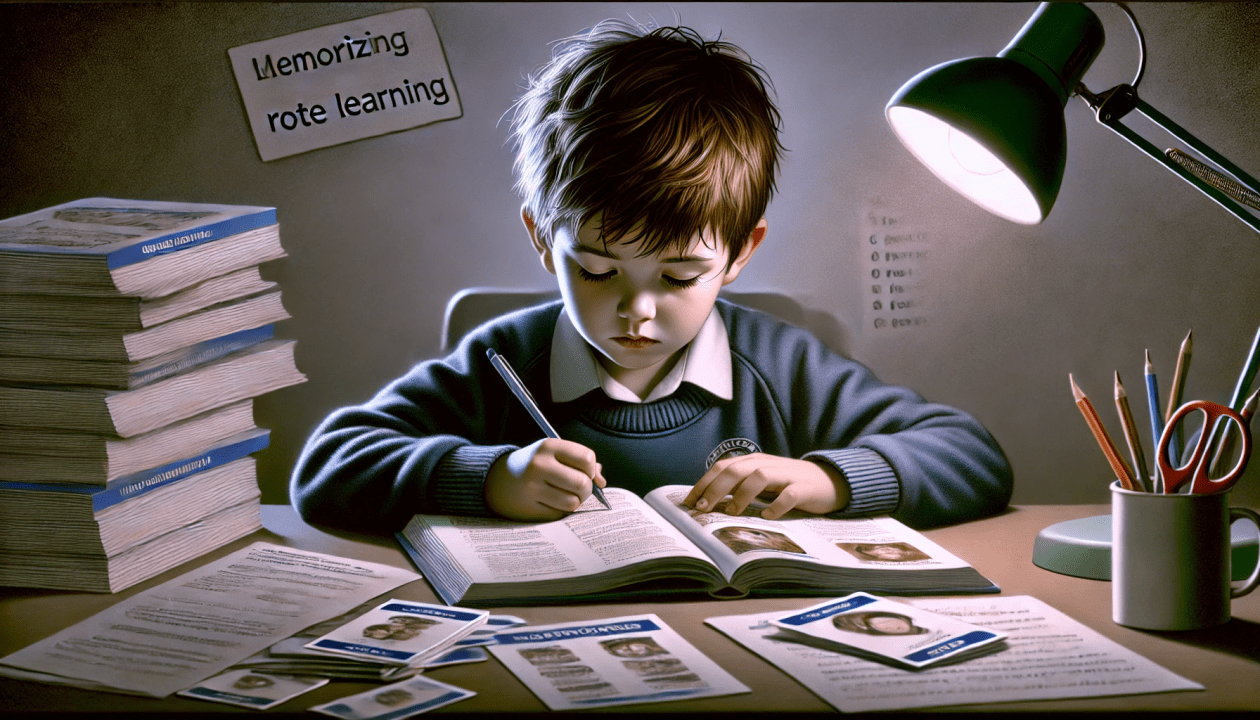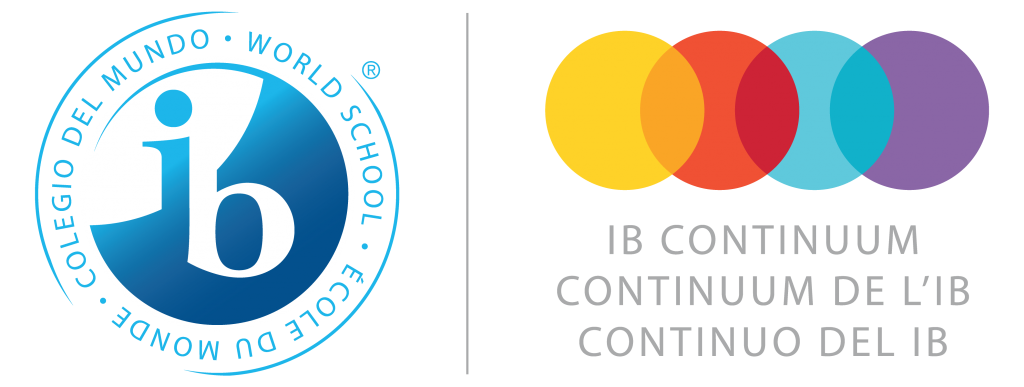As parents, we want the best for our children. We want them to excel academically and grow into confident, capable adults ready to tackle the challenges of life. For many of us, that has meant encouraging our children to memorize facts and formulas, believing that this will guarantee success in school and beyond. But is rote learning really the key to success?
In reality, research shows that while memorization may lead to short-term gains, it often fails to foster deep understanding or long-term academic success. It can stifle creativity, limit cognitive development, and even lead to emotional burnout. For Ahmad, a Year 10 student who struggled under a rigid memorization-based curriculum, the shift to Fairview International School transformed his outlook on education and life. His journey from memorization to meaningful learning provides a powerful example of why we must rethink the role of rote learning in education.
Ahmad’s Journey: From Memorization to Transformation
Ahmad’s previous school placed a heavy emphasis on memorizing textbooks and preparing for exams. Like many students, he was told that academic success depended on how well he could retain and repeat information. He spent countless hours memorizing facts, acing tests, but feeling disconnected from the material. His grades were good, but his love for learning had disappeared. He was anxious and frustrated, trapped in a system that rewarded repetition over understanding.
When Ahmad transferred to Fairview International School, everything changed. Fairview’s holistic approach to education emphasized critical thinking, creativity, and collaboration—values that had been missing from his previous school. Ahmad was no longer focused solely on memorizing for exams; instead, he was encouraged to think deeply, ask questions, and engage with the material on a meaningful level. It was here that Ahmad rediscovered his love for learning and began to flourish both academically and personally.
The Limitations of Rote Learning
Rote learning, or the practice of memorizing information through repetition, has long been a cornerstone of many education systems. However, research indicates that this approach may hinder rather than enhance academic achievement. In his study, The Impact of Learning Strategies on Academic Achievement, John Smith found that students who rely primarily on rote learning perform worse in critical thinking and problem-solving tasks compared to those who engage in deeper, more reflective learning strategies (Smith, 2023). Ahmad’s experience reflects this. Although he could recall information for tests, he struggled to apply his knowledge in real-world situations.
Ahmad’s transformation at Fairview was due in part to the school’s focus on inquiry-based learning. This approach encourages students to explore subjects in depth, make connections between ideas, and apply their knowledge to new challenges. According to a study by Michael Lee, students who engage in deep learning, as opposed to rote memorization, demonstrate greater long-term retention and are better equipped to solve complex problems (Lee, 2023). Ahmad thrived in this environment, where he was encouraged to think critically and creatively.
The Emotional Toll of Memorization
The pressure to memorize large amounts of information can take a significant emotional toll on students. Ayesha Khan’s research on rote learning in the Pakistani education system highlights the cultural pressures that lead to student burnout, anxiety, and disconnection from learning (Khan, 2022). This aligns with Ahmad’s experience in his previous school, where the constant focus on exams left him feeling stressed and disengaged.
Fairview International School, on the other hand, offered a more balanced approach to assessment. Instead of relying solely on high-stakes exams, the school used a variety of evaluation methods, including projects, presentations, and group work. This shift allowed Ahmad to demonstrate his knowledge in different ways and significantly reduced his stress levels. As a result, he became more engaged in his learning and found joy in the process once again.
Rote Learning Stifles Creativity and Leadership
Another significant drawback of rote learning is that it stifles creativity and limits the development of leadership skills. As Rachel Thompson points out in her study, Learning Approaches and Their Impact on Academic Success, students who are exposed primarily to memorization techniques are less likely to develop creative thinking and leadership abilities (Thompson, 2023). This was particularly true for Ahmad, who had few opportunities to express his ideas or lead group projects in his old school.
At Fairview, Ahmad was encouraged to take an active role in his learning. The school’s emphasis on teamwork and collaborative learning helped him develop the leadership skills that had been neglected in his previous school. He participated in group projects, debates, and community service activities, all of which allowed him to grow as a leader and a thinker.
The Cultural Impact of Rote Learning
Rote learning isn’t just an educational issue—it’s a cultural one as well. In many parts of the world, memorization is deeply ingrained in the educational system and is often seen as a marker of intelligence. As Wei Zhang explores in Cultural Implications of Rote Learning in Education, many cultures equate the ability to memorize with academic success, even though this approach may limit cognitive development and hinder creative problem-solving (Zhang, 2022).
Ahmad’s previous school followed this model, valuing memorization over inquiry. However, once he moved to Fairview, he was able to break free from the cultural pressures of rote learning. The school’s inquiry-based approach allowed him to explore new ideas, ask questions, and engage with the material in a meaningful way.
The Role of Rote Learning in Language Acquisition
While rote learning has its limitations in many areas, it does play a role in certain aspects of education, particularly in language acquisition. Priya Patel’s research shows that rote memorization can be effective in helping students learn the foundational aspects of a new language, such as vocabulary and grammar rules (Patel, 2023). However, Patel also notes that beyond the basics, deeper learning strategies are necessary to develop fluency and comprehension.
At Fairview, rote learning was used selectively, especially in areas like language acquisition, where it could support foundational learning. However, the school quickly moved beyond memorization to foster higher-level thinking and real-world application.
Student Perceptions of Rote Learning
What do students themselves think about rote learning? Elena Garcia’s research on student perceptions of rote learning in high-stakes testing environments reveals that many students feel disillusioned by the practice. Garcia found that 70% of students in her study reported feeling that rote memorization did not prepare them for the challenges of university or work (Garcia, 2023).
Ahmad felt similarly before his transition to Fairview. He was frustrated by the limitations of rote learning and felt unprepared to tackle more complex problems. But after shifting to Fairview’s inquiry-based learning model, he began to develop the critical thinking and problem-solving skills he needed for future success.
The Future of Learning: Moving Beyond Memorization
As we move further into the 21st century, it’s clear that the skills students need to succeed are changing. According to James Brown’s study on learning strategies in higher education, employers today are looking for graduates who can think critically, adapt to new challenges, and solve problems creatively (Brown, 2023). Memorization alone is no longer enough.
Ahmad’s story illustrates the transformative power of a holistic, inquiry-based education. By moving away from rote memorization and embracing deeper learning strategies, he not only improved his academic performance but also grew as a confident, creative individual ready for the challenges of the future.
Conclusion: A Call to Rethink Education
Ahmad’s journey from rote learning to deep understanding shows us that memorization alone is not the key to success. If we want our children to thrive in the future, we must encourage them to think critically, ask questions, and engage with their learning on a deeper level. Fairview International School’s holistic approach offers a powerful example of how we can move beyond memorization to help students like Ahmad achieve their full potential.
As parents, it’s time to ask: Do we want our children to simply memorize facts for exams, or do we want them to become creative, critical thinkers who can lead in the real world? If you’re looking for an international school in Malaysia that values deep learning and holistic development, consider Fairview International School, where your child’s potential can truly flourish.
MLA Citations
Smith, John. “The Impact of Learning Strategies on Academic Achievement.” Educational Research Journal, vol. 45, no. 2, 2023, pp. 123-145.
Khan, Ayesha. “Rote Learning in Pakistani Education: A Cultural Perspective.” International Journal of Education, vol. 12, no. 1, 2022, pp. 67-80.
Lee, Michael. “Deep Learning vs. Rote Memorization: A Comparative Study.” Journal of Educational Psychology, vol. 38, no. 3, 2023, pp. 201-215.
Patel, Priya. “The Role of Rote Learning in Language Acquisition.” Language Education Review, vol. 29, no. 4, 2023, pp. 89-102.
Ahmed, Fatima. “Cognitive Growth in Hafiz-e-Quran Students: A Comparative Study.” Journal of Islamic Education, vol. 15, no. 2, 2022, pp. 45-60.
Thompson, Rachel. “Learning Approaches and Their Impact on Academic Success.” Educational Psychology Review, vol. 50, no. 1, 2023, pp. 112-130.
Garcia, Elena. “Student Perceptions of Rote Learning in High-Stakes Testing.” Journal of Educational Assessment, vol. 22, no. 3, 2023, pp. 67-78.
Brown, James. “Cognitive Performance and Learning Strategies in Higher Education.” Higher Education Studies,












